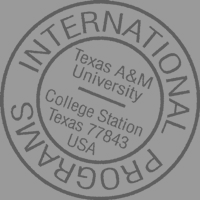Becoming Citizens of the World
Teachers who participated in the Africa in Transition workshop submitted suggestions for International Outreach Education programs next year. Many teachers used the term "global" to refer to issues that they proposed. Framing an issue in regional terms is no longer enough; our consideration must be within a global frame that takes into account multiple causes and world wide consequences if we are to educate students to be citizens of the world. Last fall I came across an interesting article on framing that broadened my thinking on the issue of immigration: The Framing of Immigration by linguist George Lakoff and Sam Ferguson on the Rockridge Institute website: http://www.rockridgeinstitute.org/research/rockridge/immigration. Take a look.
If you have a suggestion for teacher workshop topics for 2007-2008, let me know by making a comment on this blog. International Outreach Education plans to hold five teacher workshops and one student workshop related to global issues. I am in a planning mode, so now is the time to let me hear your requests.
Last week, Dr. Merry M. Merryfield, Social Studies & Global Education at Ohio State University sent out an article entitled Becoming Citizens of the World. The article poses that question: The future is here. It's multiethnic, multicultural, and multilingual. But are students ready for it? What is the best way to educate our students so that they are prepared for the challenges of the 21st century? Do you agree with the article? Let me know what you think? If you want to join Dr. Merryfield’s list serve, contact her at: world727@lists.acs.ohio-state.edu
I know that school is almost over, so bookmark The National Peace Corps Association web site for the fall. It provides resources for global studies: Internet links, lesson plans, and student activities on the Global TeachNet site: http://www.globalteachnet.org

2 comments:
To educate our students in the global 21st century, we as teachers need to become informed citizens of the world. Encouraging students to seek answers is important, but making the linkages between cultures is even more so. Honest and open dialogue allows students to begin seeking for answers, and we as teachers can guide them along the path of learning by showing them the availability of resources and the importance of community activism (local, state, national, and global). We as global beings do not stand alone, and our students need to know that we have to learn and share with each other to improve all of our lives.
Martha,
It would be great if your website had 2-3 min. video clips on news around the world. What a great way to start the day in middle school. More than high school students, middle school life is constricted to the classroom and home. They are not old enough to drive and work.
Post a Comment